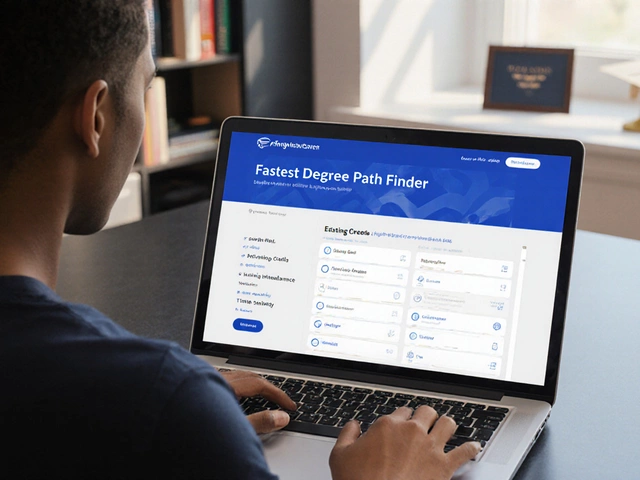Many students and parents find themselves asking, "How often should I schedule private tutoring sessions?" This question doesn't have a one-size-fits-all answer as it largely depends on individual needs and learning objectives. Engaging with a tutor can boost grades and help grasp difficult concepts, but the frequency of visits is crucial to ensuring these meetings are effective without overwhelming the student.
Assessing when and how often to meet with a tutor requires a close look at the student's academic challenges, goals, and their personal learning style. Consideration of these factors can guide the decision-making process, allowing for a tailored approach that supports the student’s academic growth without leading to fatigue. Carefully planned sessions can create an environment where students thrive and gain confidence in their abilities.
- Determining the Need for Tutoring
- Factors Influencing Tutoring Frequency
- Benefits of Regular Tutoring Sessions
- Finding the Right Balance for Success
Determining the Need for Tutoring
When considering the engagement of a private tutor, the first step is identifying the specific educational needs that warrant this additional support. This process involves a reflective and thorough assessment of the student’s current academic standing, areas where they might be struggling, and potential gaps in learning. Sometimes, parents and students alike notice that despite consistent efforts and attention in class, there's a subject or a particular topic that's persistently proving difficult. Other times, the need for external help emerges from the desire to excel beyond the standard curriculum, such as preparing for advanced examinations or competitions.
An important signal that tutoring might be beneficial is the presence of persistent low grades in particular subjects. If a student consistently struggles in mathematics, for example, this could indicate that foundational concepts were not understood at a critical time, leading to a cascading effect as topics become more complex. In such a case, a tutor can help reinforce these basic concepts, offering personalized explanations and exercises that address the student's unique style of learning. Additionally, issues such as declining confidence or enthusiasm for learning can also suggest the need for tutoring. Students who feel overwhelmed might avoid discussing schoolwork altogether, a visible manifestation of their frustration.
According to the National Tutoring Association, students who engage with tutors can improve their performance by at least one letter grade over a semester. Tutors serve not only as academic guides but also as mentors who can develop a student's interest and love for learning. If a student is aiming for specific target grades to qualify for future educational opportunities, like college entries, tutoring could be pivotal in achieving those benchmarks.
"Effective tutors can more than double the expected gains for those students who need the most assistance," mentioned a report on educational effectiveness, emphasizing a critical role tutors play in educational development.
Parents and guardians should also consider life circumstances that might affect academic performance. Situations such as a recent move, which can disrupt a student's connection to their learning environment, or a family situation that might be emotionally taxing, can result in a temporary need for academic support. A tutoring session offers a stable environment for learning, potentially bridging gaps during times of transition. Balancing school with extracurricular activities can also lead to stress, causing performance in school to slip. In such scenarios, tutoring provides a structured opportunity for focused learning, ensuring students keep pace with their curriculum requirements without additional pressure.
Establishing the need for tutoring is not merely about recognizing struggles; it’s also about setting educational goals that align with the student’s ambitions and potential interests. Some students may be curious about topics not covered extensively in school, like coding or advanced sciences. In these instances, a tutor can offer exploratory sessions that go beyond the traditional school syllabus, enabling students to dive deeper into subjects they are passionate about and potentially influence their future career paths. Hence, the decision to engage a private tutor should consider both current academic performance and future aspirations, ensuring that the support aligns with the student's holistic educational journey.

Factors Influencing Tutoring Frequency
Several elements play a significant role in determining how often a student should meet with a private tutor. Chief among them is the current academic standing of the student and the complexity of the subject matter at hand. For instance, a student struggling with the basics of mathematics might require more frequent sessions compared to someone who is adept but needs guidance with advanced topics. By analyzing one's initial understanding and the depth into which a subject needs to be learned, decisions surrounding session frequency can be made more accurately.
An individual's learning style is another critical factor that influences the decision. Some learners are quick studies, comfortable grasping new concepts with minimal repetition. Others might need repeated exposure and practice to assimilate the same information thoroughly. Tutors often tailor their methods to align with the student's preferred learning style, which can directly impact how often tutoring is beneficial. By customizing approaches, tutors can better support the student's journey, fostering both confidence and competence.
The goals and objectives set by the student or their guardians can also dictate how frequently tutoring is necessary. If a student prepares for imminent exams or competitive tests, more intense and regular sessions might be justified to ensure comprehensive coverage of the syllabus. Conversely, a long-term commitment to developing skills over a semester or academic year could allow for less frequent, but more in-depth, sessions that build gradually on the student’s existing knowledge.
According to Dr. Rebekah Otero, a leading educational psychologist, "The frequency of tutoring sessions should correlate with not only the student's current skill level but also their future academic aspirations. Balancing these factors allows tutors to craft an approach that is both supportive and strategic."
Availability and resources also play a pivotal role. In cases where students have access to numerous support materials and digital platforms, they might need fewer face-to-face tutoring sessions, relying on self-study for reinforcement. In contrast, those with limited resources may depend more on regular tutoring interventions to achieve the same level of understanding.
Finally, it's important to consider the risk of burnout. While frequent sessions can be productive, there’s a threshold at which the student may become fatigued, ultimately rendering the tutoring less effective. It is always important to monitor the student's engagement and enthusiasm towards learning, tweaking the session schedule as necessary to avoid this pitfall. Many successful tutoring arrangements find this balance by maintaining a feedback loop between the tutor, student, and often the parents, ensuring that tutoring frequency remains optimal for the student's continued success.

Benefits of Regular Tutoring Sessions
Establishing a consistent schedule with a private tutor can cultivate numerous academic benefits for students. One of the key advantages is the development of structured learning habits. Regular sessions offer students a disciplined approach to study, which is invaluable in maintaining steady progress. This kind of guidance enhances the ability to tackle difficult subjects, breaking down complex tasks into manageable parts. Such consistency can help mitigate the common anxiety associated with upcoming tests or assignments, fostering a more confident approach to challenges in the educational sphere.
Regular tutoring also tailors learning to the student's pace and level. Unlike a classroom setting where teachers must address the needs of an entire group, a private tutor can dedicate undivided attention to addressing specific areas where the student might struggle. This individualized focus ensures that the student receives help exactly where it is needed, enhancing understanding and retention. Moreover, this personalized attention often translates into improved personal confidence and academic performance, as students begin to experience firsthand the results of dedicated support tailored to their unique educational challenges.
Additionally, tutoring sessions can be a portal to nurturing critical thinking and problem-solving skills beyond bare academic gain. As tutors engage students in active dialogue, they encourage inquiry and curiosity, which are foundational traits for lifelong learning. This engagement can spark a student's passion for subjects they previously viewed as daunting. Tutors can introduce methods and tools that make learning more interesting and relatable, thus redefining the learning journey. In the words of educator and writer Ken Robinson, "The role of a creative leader is not to have all the ideas; it's to create a culture where everyone can have ideas, and feel that they're valued."
It's in these environments, often fostered by regular tutoring, where students are inspired to think creatively and out of the box.
Finally, one should not underestimate the motivational power of regular tutoring relationships. Students often view their tutors as mentors, whose encouragement provides the motivation to persevere through difficult material. This support extends beyond just academic learning; it helps students develop resilience and a positive mindset. Having a regular, supportive touchpoint bolsters a student's inclination to invest more effort into their studies. As these relationships are cultivated over time, they often contribute to a richer, more fulfilling educational experience.

Finding the Right Balance for Success
In the quest for academic excellence, the question of how many tutoring sessions are optimal often arises. Striking the right balance is essential not only for academic success but also for maintaining a healthy lifestyle. It begins with understanding the student's unique needs, which vary greatly among individuals. Some students may thrive with weekly sessions, whereas others could benefit more from bi-weekly meetings. Each student's learning style and pace must be considered to ensure the tutoring is effective. Frequent sessions can reinforce concepts and help with retention, but too much can lead to student burnout and disinterest. On the other hand, too few sessions might not provide the consistent support needed to solidify understanding, particularly in challenging subjects.
The key to finding this balance lies in regular assessments and open communication. Parents, students, and tutors should engage in conversations to discuss progress and any changes in the student's workload, interests, or stress levels. Adapting the tutoring schedule as school demands evolve helps maintain engagement and peak performance levels. Involving students in these decisions empowers them and increases their motivation and ownership of their learning journey. Educational support tailored to their needs can prevent the experience from becoming overwhelming.
An interesting approach is setting clear and achievable goals before starting the tutoring. Whether it’s improving grades in a particular subject or mastering specific skills, goal-setting provides direction and context to the tutoring. It also makes it easier to gauge if the current frequency of tutoring needs modification. According to the National Tutoring Association, "Effective tutoring is not merely about hours of instruction but about targeted support that aligns with the student's needs." Thus, ensuring that each session has a purpose aligned with the student's goals is paramount.
Statistics show that students who manage to balance their schedules effectively see a significant boost in their confidence levels, reflected in better academic performances. Recent surveys have indicated that students receiving one-on-one sessions report a 30% increase in comprehension of complex subjects. This highlights the importance of balanced and regular support rather than relying on sporadic learning bursts, which can lead to gaps in understanding. This balanced approach not only nurtures academic growth but fosters a lifelong love of learning. It's this spark that drives success beyond just the classroom.
| Frequency | Potential Impact |
|---|---|
| Weekly | Consistent improvement and retention of concepts |
| Bi-weekly | Optimized for structured comprehension |
| Monthly | Precision-based support on specific challenges |
A good strategy is to periodically review the tutoring sessions' effectiveness. This involves discussing the utility of the sessions with the student and analyzing their academic and emotional responses. Flexibility in approach is vital as tutors might need to increase or decrease the frequency based on ongoing student progress reports. By adopting a dynamic approach, private tutoring can truly be the wind beneath the student's wings, helping them soar to new heights of academic success.






